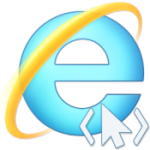BBC aims to make programming sexy with new coding TV shows for kids

The BBC is looking to create a new generation of code monkeys with a programming push in schools throughout England. Of all the subjects available to study at school, computer science, IT, computing (call it what you will) isn’t exactly, you know, sexy and exciting, but the Beeb is hoping to change that. Back in the 1980s the BBC -- the UK's license free subsidized public service broadcaster -- spearheaded a drive to popularize computing in general, but particularly programming. Three decades later, the new initiative includes plans for not just one, but several programming-themed TV shows aimed at children.
The BBC has already held talks with Microsoft, BT, Google and Samsung, and has managed to sign agreements with between 10 and 20 partners to help with the new endeavor. In addition to the TV shows, there will also be a range of study guides and other material made available at BBC Bitesize, the broadcaster's online education resource. Jessica Cecil, controller of the BBC's coding and digital creative initiative, said: "It's about giving the next generation a chance to shape their world, not just be consumers in it."
Google Authorship comes to the end of the line

Continuing its propensity for terminating projects, Google has decided to kill of its Authorship program. The markup was introduced to provide online writers with a way to link their work to their Google+ profile and have their profile picture displayed in search results. But in its three year lifespan, Authorship did not really manage to take off, and Google Webmaster Tools' John Mueller announced that "we've also observed that this information isn't as useful to our users as we'd hoped, and can even distract from those results. With this in mind, we've made the difficult decision to stop showing authorship in search results".
Head to one of the Google Authorship support pages and you're greeted by the message: "Authorship markup is no longer supported in web search". This is an interesting move, especially considering how keen Google has been to push people into using Google+. Authorship not only enables writers to more visibly stamp their mark online, but also to gain a following. In practice it was found that Authorship did little to help drive traffic and "wasn't always easy to implement".
Traditional development practices don't work for mobile apps

As IT teams face more demands from business units for new mobile applications they'll need to adopt practices that are different from traditional development techniques.
This is according to IT research company Gartner which says that users find it challenging to effectively describe what a mobile app needs to do and therefore the approach of sitting down with a business analyst to define requirements doesn't work.
Fast-PATH installer streamlines Hadoop deployments and reduces costs

Though it's one of the most popular big data tools, Hadoop is still evolving and as a result doesn't always have the sophistication of more traditional databases, which can lead to higher support and operation costs.
A new product from big data security specialist Zettaset aims to streamline Hadoop deployment for the enterprise with software automation that eliminates many of the manual configuration processes.
Microsoft’s Sharks Cove is a Raspberry Pi-style mini-PC with Windows 8.1

Microsoft is entering the development board market made famous by Raspberry Pi and Arduino.
The firm is collaborating with Intel and hardware manufacturer CircuitCo to develop the $300 board, called Sharks Cove. Available now for pre-order, the project is described as a "development board that you can use to develop hardware and drivers for Windows and Android".
Why C++ is the perfect choice for modern app development

It feels a bit ironic to be discussing, in 2014, if C++ is a viable, or more importantly, a great choice for multi-device, multi-platform app development. It’s ironic in the sense that despite the attention Objective-C, Java, and C# get for app development, most of the software we use on a daily basis is written in C/C++ and after all these years represents the largest community of developers.
There are many reasons to use C++ for your current and future app development and I will discuss five key reasons after a brief history.
Google reveals workaround for paid Android Wear apps

Even though Android can run paid apps without any problems whatsoever, the same cannot be said about Android Wear. Google's new operating system for wearables fails to install anything but free offerings, effectively preventing developers from making money.
That is not much of a problem now, as most Android Wear-designed apps are free. But, as the platform gains more traction, this could severely impact developers' interest. Google, however, has decided to reveal a workaround.
HyperCat protocol will make or break the Internet of Things

The idea of connected devices means far more than wireless webcams and televisions that are connected to the internet. The Internet of Things is a buzzword, but it’s also a real, tangible thing. Consumers and businesses alike are looking to the ways in which connected devices can help to make life easier, more efficient, and more profitable. In many ways, this is Internet 2.0 -- we've had Web 2.0, now the Internet is being taken to the next level -- as the benefits of getting ever more devices not only online, but also communicating with each other, are realized. But just as with the web, the IoT needs protocols to ensure compatibility between devices, and this is what HyperCat hopes to bring about.
A collaboration between dozens of UK technology firms, HyperCat is… well… let's allow it to introduce itself. "HyperCat is a media type for the web allowing servers to list catalogs of resources. It is designed to make discovery of IoT services and assets easier". It's a protocol, a specification, a standard. It's an attempt to define the semantics of the Internet of Things, helping to level the playing field and start everyone off on an even footing. As we saw with the VHS and Betamax battle, and the Blu-ray vs HD-DVD format wars, there are just no winners when there are two or more competing formats. It makes perfect sense to pin down how the IoT should work as early as possible, and this is precisely what HyperCat aims to do.
Rainbird AI set to hit open beta on 21 July

Rainbird Technologies has announced that its artificial intelligence software will enter open beta on 21 July, so in just under a month from now, the company hopes that a range of devs, schools, charities and non-profits will benefit from the product.
Rainbird AI is a web-based platform designed to make artificial intelligence tech available to and usable by those without any programming skills or knowledge.
US Supreme Court squares up to software patent trolls with stricter rules

A ruling by the US Supreme Court could change the way patents are assigned in the future. A case between New York-based CLS Bank International and Australian company Alice Corp found judges unanimously agreeing that software patent was invalid because it was simply an existing idea transferred to a computer. In order to qualify for a patent, an idea must be unique, and the court ruled that the simple addition of a computer application is not enough.
CLS Bank International had complained that Alice Corp had applied a "generic computer implementation" to a patent owned by the bank, rendering it invalid; the court agreed. "The representative method claim does no more than simply instruct the practitioner to implement the abstract idea of intermediated settlement on generic computer", the ruling states.
Internet Explorer Developer Channel adds GamePad, WebDriver support

Microsoft has unveiled Internet Explorer Developer Channel, a special preview version of the browser which includes upcoming developer-oriented features and extended standards support.
One major highlight of this release is that it’s packaged as an App-V application, which means it runs in a virtualized environment and won’t affect your existing Windows or Internet Explorer setup at all. There are none of the usual dangers of installing an unfinished IE build. You can run Internet Explorer Developer Channel alongside IE11 without any conflicts, and uninstall it cleanly at any time.
Privacy blow -- .UK websites must publicize registrant's name and address

It seems there are new privacy worries at every turn. The latest cause for concern relates to websites in the UK. Nominet, the internet registry services provider for .uk domains, has changed one of its policies, and the change means that individuals running websites may have to reveal their home addresses. There are obvious privacy and security concerns associated with this, particularly for websites run by individuals who wish to remain anonymous -- full names of domain registrants must also be displayed.
Nominet's policy on opting out of appearing on WHOIS searches is not immediately clear. Things start off in a fairly simple fashion. "Only domain name holders that are non-trading individuals can opt out of having their address details published on the WHOIS". Great; my website is just a blog. There's no need to advertise my home address for the world to see, you might think. But 'advertise' could be the key word here. If Nominet classifies you and your site as a business, it is a completely different story and your home address must be displayed.
Apple hints big iPhone is underway

Apple has all-but confirmed that iPhones with larger screens are on the way after developers made a discovery that allows them to simulate different screen sizes for both the smartphone and iPad.
9to5Mac reports that XCode 6 includes a new iOS simulator that allows developers to resize the simulated screen to any resolution thus leading most to suggest that this is the another step that will eventually lead to larger screen iPhones and iPads.
The new industrial revolution -- machines rise up to become our equals

The Internet of Things is just the latest buzzword that is being used to push all manner of products. Let's cut to the chase -- it's just about "stuff" (other than obvious things like computers and phones) connecting to the internet. Nothing more than that. But this dismissive-sounding definition is not meant to undermine the importance or the significance of the IoT. We've spent the last 20 years or so getting used to the idea of accessing the web, harnessing what it has to offer, exploiting it in various ways and finding all manner of methods of using it to make life easier, more entertaining, and more profitable. The evolution of the Internet of Things sees this taken to the next level.
We are on the cusp of a new industrial revolution. Many would say that the wheels are already in motion. The tired -- very, very tired -- example of what the Internet of Things is about, is the prospect of owning a fridge that will be aware of when you run out of milk, and then either alert you or place an order on your behalf. This is a very simplistic view of things, but it is the communication between devices that will be the hallmark of things to come. Inter-device communication, or machine-to-machine (M2M) connectivity. Devices that can be left to their own devices (ahem) are approaching in ever-growing numbers, and there are advantages to be gained.
Google offers End-To-End encryption with new alpha Chrome extension

Today, Google took the wraps off a new security tool for Chrome users. Currently available as an alpha release, End-To-End is an extension for Google's browser that offers... well... end-to-end encryption for data arriving in and departing from Chrome. As this is only an alpha version, the extension is not currently available in the Chrome Web Store, but Google has made the code available so the privacy-conscious and security-minded can take it for a test drive.
Based on OpenPGP and a newly developed, JavaScript-based crypto library, End-to-End can be used to encrypt, decrypt, digitally sign, and verify signed messages. Google is keen to receive feedback -- discover a problem and you could cash in, thanks to the Vulnerability Reward Program. In a post on the Google Online Security Blog, Stephan Somogyi, Product Manager, Security and Privacy explains that "we recognize that this sort of encryption will probably only be used for very sensitive messages or by those who need added protection. But we hope that the End-To-End extension will make it quicker and easier for people to get that extra layer of security should they need it".
Recent Headlines
Most Commented Stories
BetaNews, your source for breaking tech news, reviews, and in-depth reporting since 1998.
© 1998-2025 BetaNews, Inc. All Rights Reserved. About Us - Privacy Policy - Cookie Policy - Sitemap.